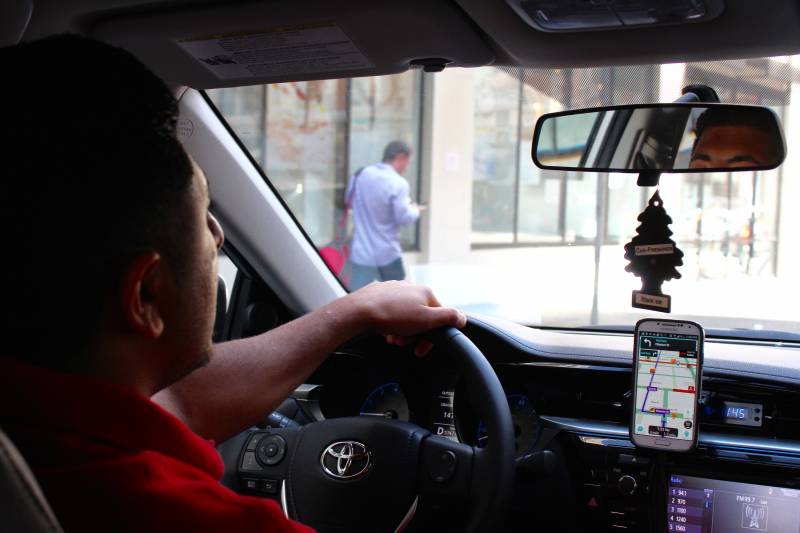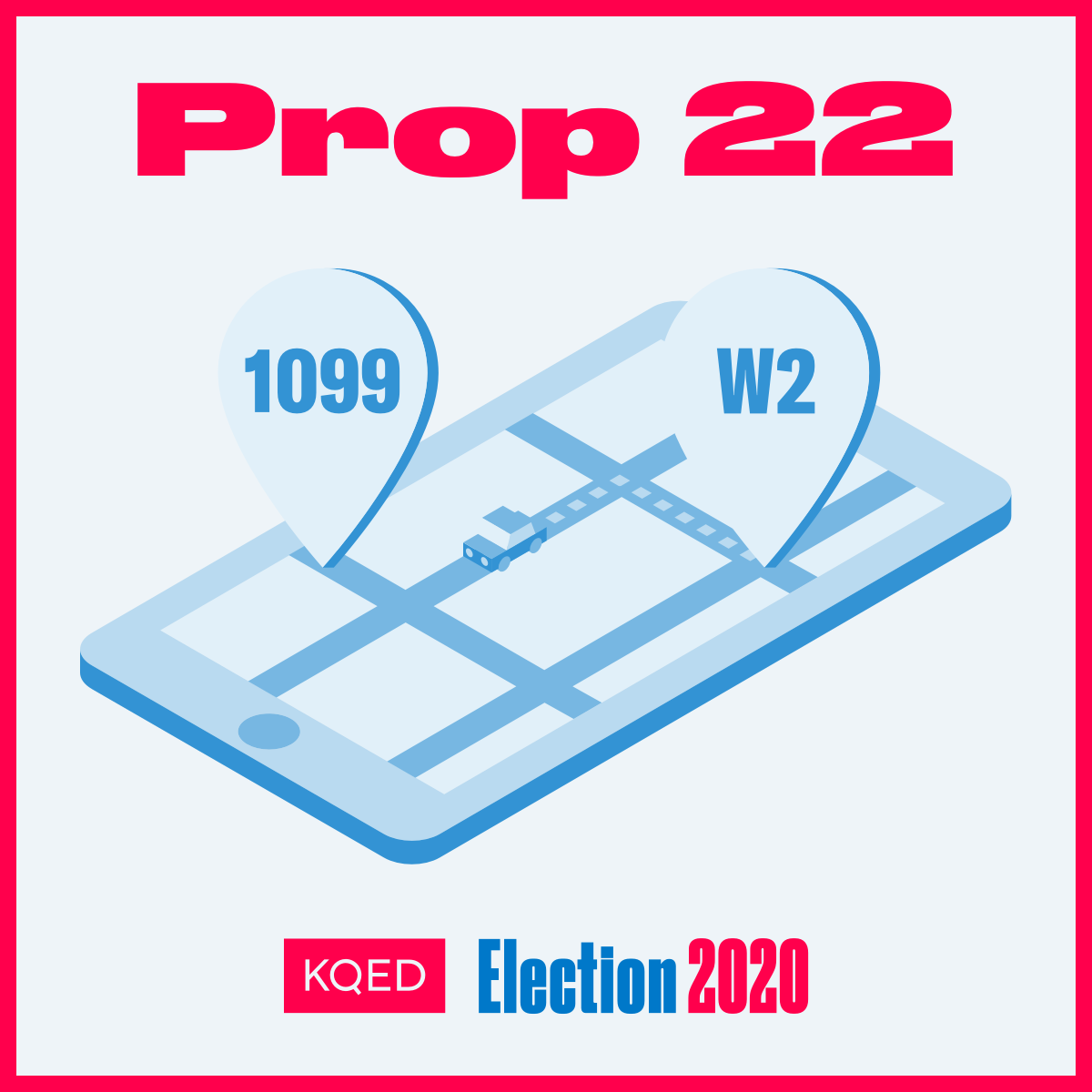Lyft driver <[00:00:26] Right now, I’m going to school. As my part-time gig to make money I’m doing Lyft.
Uber driver [00:00:31] We’re not able to work when we want to, we pretty much have to work when we have to, in order to make money.
Olivia Allen-Price [00:00:38] How should app based drivers be classified? As employees or contractors? Prop 22 asks the public to decide. Today in the show we’ll unpack what difference those classifications make and learn how Prop 22 could impact the future of work.
Olivia Allen-Price [00:01:02] KQED reporter Sam Harnett has been covering these gig apps for years now and is here to walk us through Prop 22. Welcome, Sam.
Sam Harnett [00:01:09] Hello, Olivia.
Olivia Allen-Price [00:01:10] So I know there’s a lot of layers to this one and we’re gonna get into all of those, but give us first a brief break down, what would Prop 22 do? What are we voting on?
Sam Harnett [00:01:19] So at the highest level, Proposition 22 would exempt a handful of gig app companies like Uber, Lyft and Instacart from California state labor law. And it would allow those companies to continue classifying their drivers as contractors.
Olivia Allen-Price [00:01:33] And the issue of whether app based drivers, you know, should be considered employees or independent contractors, it really goes back to sort of the beginning of when these apps kind of first came out. What’s going on?
Sam Harnett [00:01:45] Sure. So if you go back to the beginning of Uber and Lyft in 2012, they started using this labor model where they, they classified their workers as contractors, which means they don’t pay unemployment insurance, they don’t have to pay overtime, they don’t pay workers comp. They have way less liability if there’s an accident. The whole business model is built on this contractor status, which was legally suspect from the start. So there are lawsuits right in the beginning against these companies, but the companies prevailed and they were able to keep classifying their workers as contractors.
Sam Harnett [00:02:11] Then in 2018, the California Supreme Court came in and they issued what’s called The Dynamex Decision, which actually wasn’t about the gig companies, it was about this independent trucking company that was classifying workers as contractors. But anyway, it made it harder for companies to classify workers as contractors. So in 2018, a lot people thought, OK, now these companies are going to change and start classifying workers as employees. But the companies didn’t.
Sam Harnett [00:02:34] So, the legislature in 2019 passed a law called AB 5, which just codified into law the California Supreme Court dynamic’s decision. That became a law in 2020, and a lot people thought, OK, now, Uber, Lyft and InstaCart, they’re going to classify their workers as employees. But the companies didn’t. So then the pandemic happens, suddenly you’ve got tens or hundreds of thousands of workers for these apps that are out of work, but they can’t collect unemployment because the companies never paid into the state unemployment fund. So then you had the California attorney general step in, and a bunch of city attorneys, and they sued Uber and Lyft. This was back in May. And they sued them saying, hey, listen, you’re you’re still misclassifying your workers. Meanwhile, Uber, Lyft, Instacart, Postmates and a bunch of the other gig apps put Proposition 22 on the ballot. And they’re betting like, OK, if we can get the voters to pass this proposition, then we can keep operating as, as we were before.
Olivia Allen-Price [00:03:27] Can you explain a little bit more thoroughly like what is the difference effectively between an employee and an independent contractor?
Sam Harnett [00:03:34] In America the only way to get basic protections like unemployment insurance, guaranteed minimum wage, overtime, workers compensation, is to be an employee. If you’re a contractor, you don’t get any of those protections. That’s essentially the difference. Really, the contractor was supposed to be for kind of professionals who were making a ton of money and were deciding to be a contractor because they wanted to, not because they were being forced to be a contractor. But corporations saw that, hey, with this contractor model, we can get out of paying for all these employee benefits and protections, and it’s way, way cheaper. So over the last, you know, since the late 70s, companies have been pushing more and more workers from employees into contractor status. It’s really just about do you get guaranteed employee protections or not?
Olivia Allen-Price [00:04:19] OK. And can we get into, like, a little bit the nitty gritty of 22 – what would really change.
Sam Harnett [00:04:25] So Proposition 22 is a carve out for select companies. And the carve out is for companies that do transportation or delivery through apps. And if a company fits that description, that means they can classify their workers as contractors.
Olivia Allen-Price [00:04:39] And this isn’t just like Uber and Lyft, which is what I think people immediately think of, but also like delivery, like DoorDash, Instacart,.
Sam Harnett [00:04:46] PostMates.
Olivia Allen-Price [00:04:47] Anyone who is in a car.
Sam Harnett [00:04:48] Yeah. Through an app, on a car, on a bike, doing delivery or transportation.
Olivia Allen-Price [00:04:53] OK.
Sam Harnett [00:04:53] The proposition then also has a couple increase perks or benefits for contractors. They can get health subsidies if they drive a certain amount. They can get limited insurance. They also, it says Iike a minimum floor for pay, but the minimum pay is calculated based on engaged hours – this is a really important difference. So it’s 120% of minimum wage is going to be guaranteed, but that’s only while you’re actually engaged in the app.


